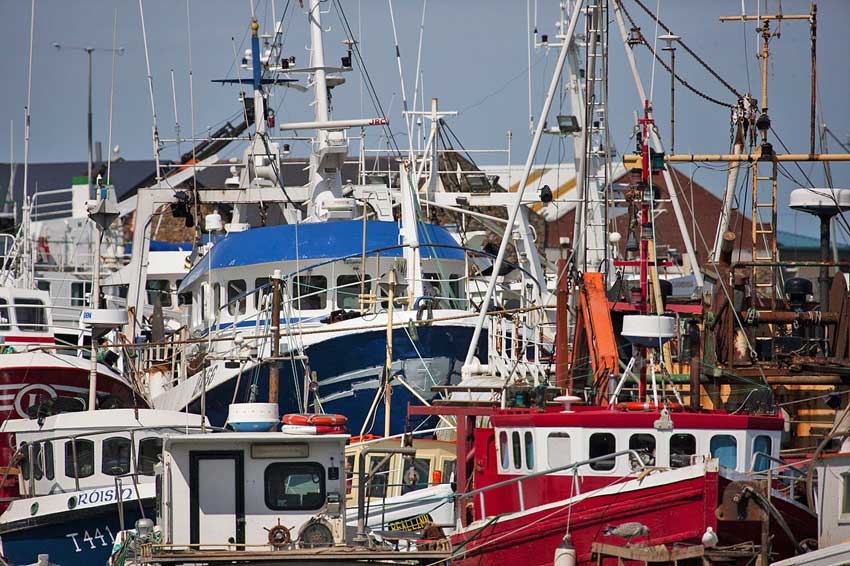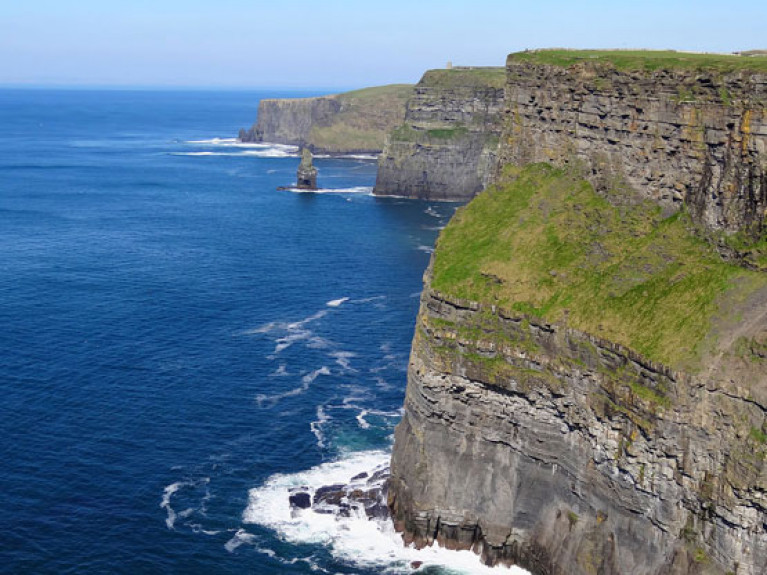In Ireland, 1.9 million people live within 5km of the coast and many communities along the Irish coast depend on industries such as tourism, fishing and aquaculture.
Furthermore, there is now mounting evidence that the ocean plays a key role in the general wellbeing of our coastal communities.
This week’s Oceans of Learning series explores the importance of Ireland’s coastal communities, with resources from the Marine Institute, Commissioners of Irish Lights, Údarás na Gaeltachta, Galway City Museum and the Explorers Education Programme.
Dr Paul Connolly, chief executive of the Marine Institute, said: “As an island nation, our 7,711 kilometres of coastline is one of our greatest assets.
“Our fishing and aquaculture industries, tourism and marine leisure make a significant contribution to the economic development of Ireland’s coastal regions, and provide employment opportunities for many in our coastal communities.”
One of the key industries contributing to Ireland’s ocean and coastal economies is tourism and leisure. The sector generated a turnover of €1.25 billion in 2018, and provided employment for over 18,000 people — accounting for 57% of all employment in the Irish economy.
Ireland’s scenic coastline, rocky escarpments and beaches attract a large number of overseas visitors every year. In 2018, 76% of overseas tourists visited a coastal area and 61% participated in a marine-related leisure activity. Coastal sightseeing, beach and island visits and walking, running and cycling along the coast are popular activities for overseas visitors.
The Irish coastline is dotted with inlets, piers and harbours used by fishermen every day. Fisheries in Ireland significantly contribute to the economy as a whole and in particular to coastal communities. In 2019, Ireland had over 2,000 registered commercial fishing vessels and the industry provided employment for 3,000 people.
 Fishing boats in Howth | Photo: William Murphy/Wikimedia
Fishing boats in Howth | Photo: William Murphy/Wikimedia
Inshore fishing take places in many rural communities with fishermen using small vessels to catch species such as lobsters, crabs, oysters, scallop, razor fish and clams. Inshore fish stocks (up to 10 miles from the Irish coast) are managed nationally and the Marine Institute works closely with Bord Iascaigh Mhara (BIM) on inshore fisheries management.
The seafood industry is also an integral part of Ireland’s rural coastal communities. In 2019, more than 16,000 people were employed directly and indirectly in the seafood industry, with high levels of employment in Ireland’s coastal regions in Donegal, Cork, Galway and Clare. Oysters, salmon and mussels are sustainably farmed around the coast of Ireland.
The aquaculture industry in Ireland produces about 37,000 tonnes annually, and the turnover generated by marine aquaculture in 2018 was estimated at €176 million. Shellfish aquaculture activities are widely distributed across the coast of Ireland, while finfish aquaculture occurs mainly in the west of Ireland.
Seaweed harvesting is a traditional activity in Ireland that also generates income and offers employment in coastal areas. Seaweed harvesting takes place around the coast of Ireland, particularly in counties Galway, Donegal, Sligo, Kerry and Cork.
Climate change impacts pose significant challenges to coastal communities. Such impacts include rising sea levels, coastal erosion, flooding, and an increase in extreme weather events.
Adapting to a changing climate is one of the greatest challenges facing society, governments and decision-makers worldwide. The Marine Institute works with national and international partners to observe and understand how our ocean is changing and to determine how to respond to current and future patterns of change that impact Ireland’s economy and people.
Through the BlueFish Project, a unique project linking art and science, the Marine Institute has also worked with coastal communities in Ireland and Wales on the importance of the ocean to their livelihoods and the impacts of a changing climate.
“As a small island nation, the health of our oceans and the wellbeing of our coastal communities have always been and will continue to be inextricably linked,” said Dr Connolly































































